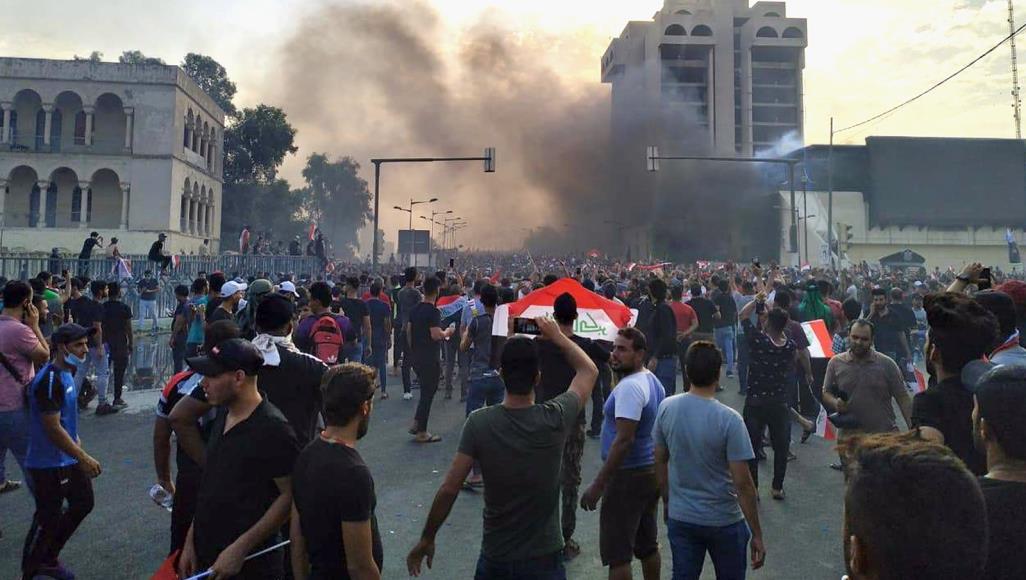Demonstrations in Baghdad and some other Iraqi provinces began on Tuesday, October 1in protest to corruption and unemployment, but quickly derailed from its main cause and entered political and sectarian phase, leading to clashes between demonstrators and security forces. Following these developments, the Iraqi government, at the request of the Iraqi people and the Supreme Religious Authority, who called for urgent consideration of the rightful demands of the peaceful demonstrators, announced an immediate package of reforms in the framework of the expectations of the Supreme Religious Authority and the demands of the people. This helped the protesters calm down to some extent but it will depend on the mechanism of implementing these reforms and their continuity.
The demonstrations have eased in recent days due to the pledge of reforms by the government of Adel Abdul Mahdi and some arrests, but the important point is that failure to carry out structural reforms will keep the demands like fire under the ashes which could inflame at any moment.
It should also be noted that Iraq has a mosaic identity and structure, and it seems that the ultimate solution to its current state of passage from today’s crisis can be adapted from consociational democracy, a kind of democracy that is specific to heterogeneous or multicultural societies. In fact, the only way Iraqis can get out of the crisis is to increase political participation. On the other hand, given the characteristics of good governance, women, youth, and all walks of life, when looking at and examining a government, pay particular attention to its effectiveness.
Therefore, the Iraqi government must consider a few things in order to satisfy its people; first, it is the question of transparency that should be applied to the highest level in the oil states. The other is accountability. The issue of combating corruption and the use of clean elements with a good track record in the fight against corruption also issues the Iraqi government must pay close attention to.
In addition, it should be noted that in such conditions of protest, opportunistic and vengeful groups with political and security grudges quickly activate passive faults, spanning a variety of spectrums. These include the surviving Baathists from the time of Saddam Hossein, elements of ISIS or their loyalists, and regional and global powers such as the United States or the Israeli regime, which have sparked and intensified these protests to accomplish their specific goals. Therefore, external interference has always existed in the state of protests against domestic issues in any country.
On the other hand, some believe that world powers, as well as some regional powers, are in competition to overthrow the Iraqi government, which has faced a foreign conspiracy. Meanwhile, mention can be made of US discontent with Adel Abdul Mahdi’s foreign policy toward China and Russia, or the question of Resistance. This can be explained within the strategic competition between foreign powers.
Iraq has always been the scene of cold war rivalries between the former Soviet Union and the United States during Saddam and before him, and these rivalries have turned violent because of rich oil resources.
Now inside Iraq, probably because of involvement of Russia and China as effective actors in Iraq, these reactions will be natural because China is now a focal point in US national security doctrine, and Americans are watching China everywhere. However, to have a sound understanding of Iraq, a set of diverse domestic, foreign, and regional factors should be taken into consideration.










0 Comments